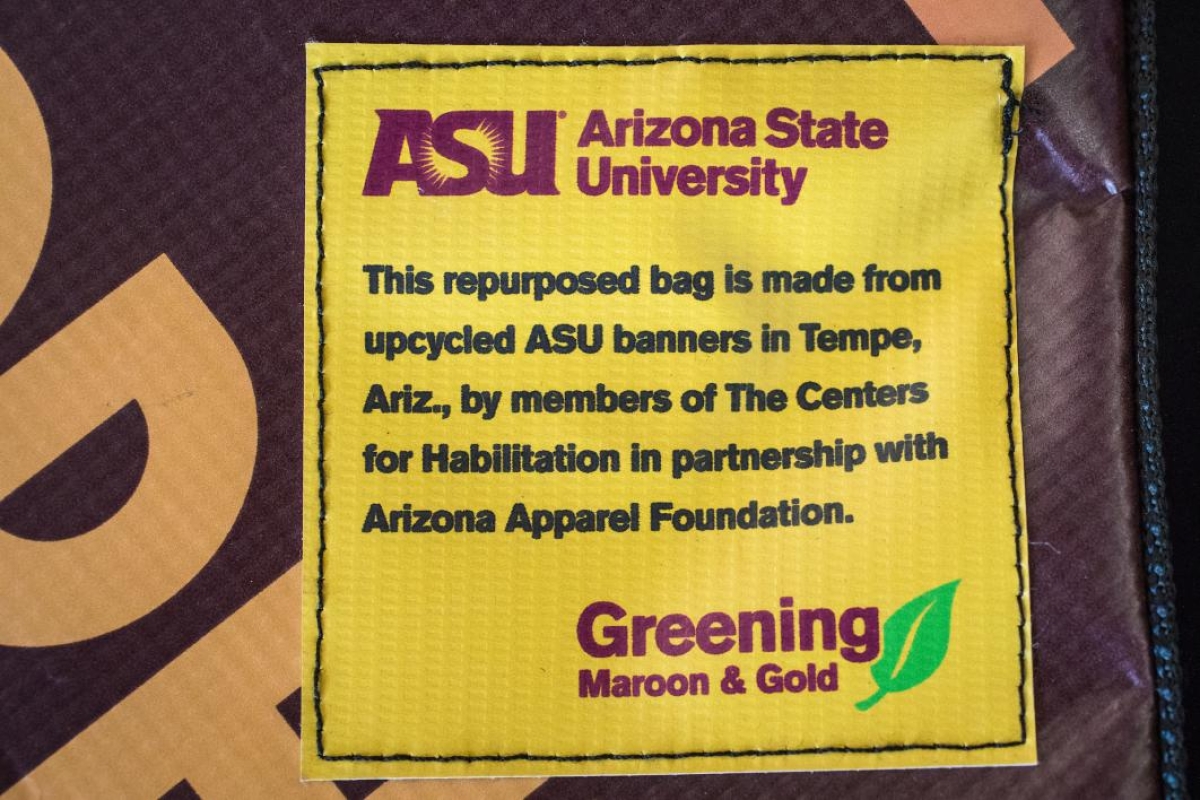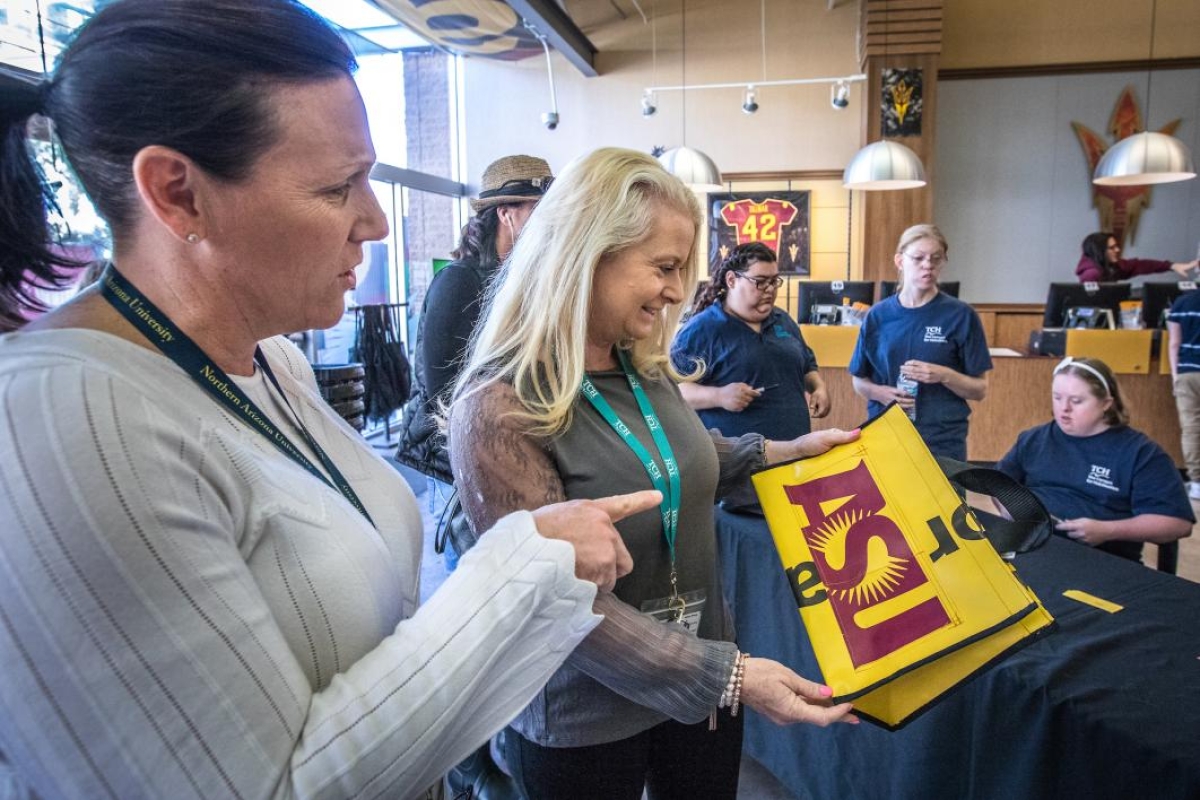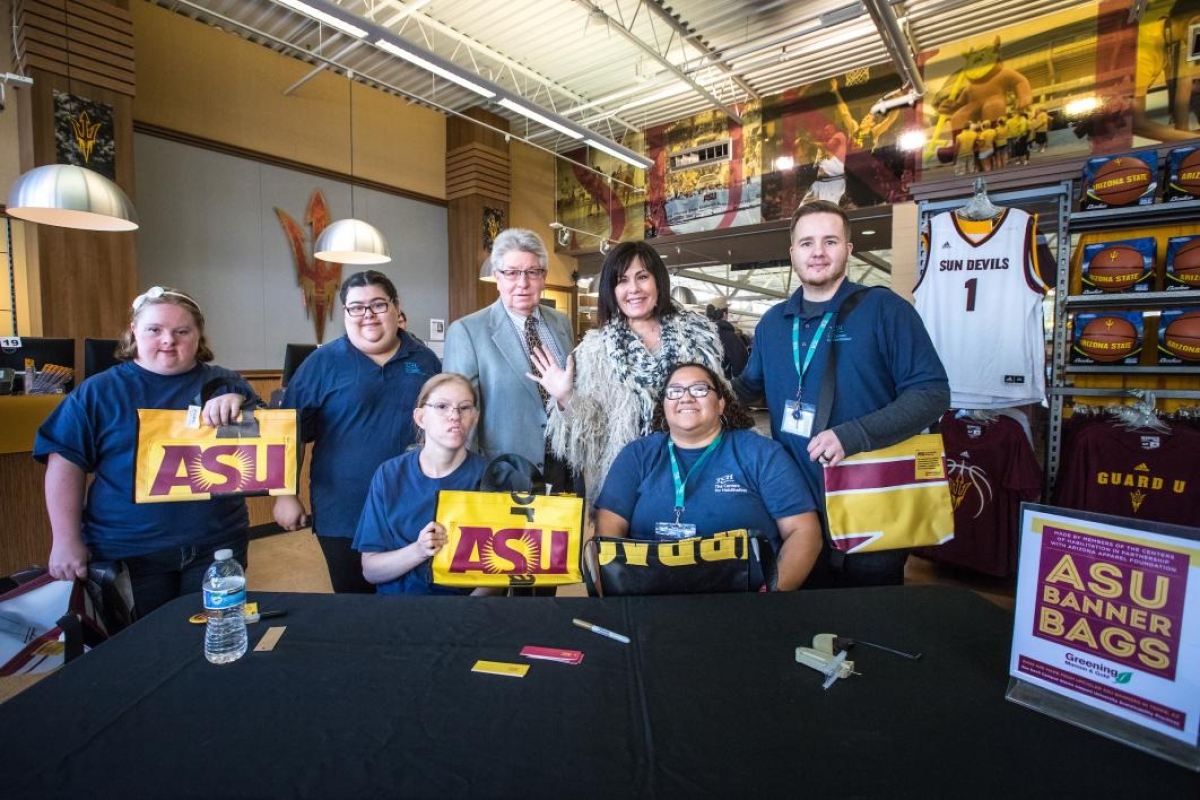Banners to bags: ASU partners with local group to change the way we recycle

Step into the bookstore on Arizona State University's Tempe campus and you'll see the familiar vibrant and promotional images that typically don ASU's vinyl event banners.
There will be one noticeable difference, however — those images have been turned into Banner Bags, special tote bags that are one of the latest and most eco-friendly accessories a Sun Devil can find.
"Our hope is that students will find these bags both cool and useful," said Travis Buckner, a graphic design specialist in the Julie Ann Wrigley Global Institute of Sustainability, who spearheaded the Banner Bags initiative at ASU. "They are just another example of why ASU is No. 1 in innovation."
The university first started upcycling its banners into bags in 2010, but Buckner revived and re-worked the program a little over a year ago.
The resurrection included keeping the process of making the bags close to home, instead of the past protocol that shipped them to Texas and back. Now they are being made right in the heart of Tempe at a fashion incubator called FABRIC.
"I did a little research and discovered the perfect solution was about 100 yards from my office," Buckner said. "FABRIC stands for Fashion and Business Resource Innovation Center and they have a program there which helps teach young adults with disabilities how to sew. We instantly thought this was the perfect job for that program."
The resurrected Banner Bags hit Sun Devil Campus Stores back in January, but sold out within a day. Now, more bags have been made and are on-sale again at the Orange StreetThe Sun Devil Campus Store is located at 525 E. Orange St., Tempe, 85281. location.
The Banner Bags have ignited a larger conversation around circular resources, a process that the university hopes will change people's purchasing and disposal practices. By incorporating the circular resource process into ASU's Zero Waste goal, the school can start to measure the health of material resources by assessing their entire lifecycle.
"The bags are a perfect example of extending the life of discarded materials and generating value in the community," said Alana Levine, an associate director of facilities management at ASU. "We are no longer looking solely to recycling and waste reduction to decrease the impact of waste produced at ASU. Instead, we are challenging the community to create positive outcomes by participating in these reuse and upcycling programs."
Levine, who also serves as the president of the Arizona Recycling Coalition, notes that the bags are a great representation of how the Tempe community can come together to make a difference in the environment and economy.
"They highlight how every community member can have both an intrinsic value and a role to play in a circular, sustainable economy," she said. "Of course, they also look great."
In total, ASU has a current goal of achieving 90 percent diversion (taking a product that can't be recycled and turning it into something useful) by the 2025 fiscal year.
By the January launch event, the Centers for Habilitation had made over 100 bags out of ASU’s vinyl banners, keeping over 40 pounds of vinyl out of the landfill.
Top photo: Shoppers purchase Banner Bags at the Tempe campus Sun Devil Campus Store on Tuesday, Jan. 23. The bags, made of recycled ASU banners are designed to be sturdy enough to carry books and laptops. Photo by Charlie Leight/ASU Now
More Environment and sustainability

Saving the environment to save ourselves
Saving the environment.At Arizona State University, that's not just a trendy slogan. From water insecurity to wildfire awareness to cleaning pollutants in urban fishing waterways, ASU is…

A sea change regarding our ocean
The ocean matters more than most of us may realize.Our seas offer soothing scenes for millions of vacationers. They provide seafood for our tables. They are a conduit for global logistics — from the…

'Earth Day Amplified' promotes power of collective action
Everybody loves the concept of sustainability. They want to do their part, and the chance to say they’ve contributed to the well-being our of planet.But what does that actually mean?Arizona State…




